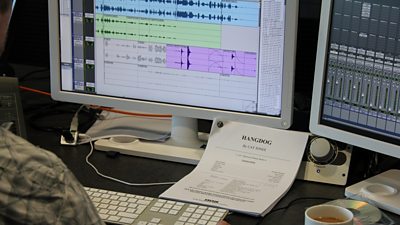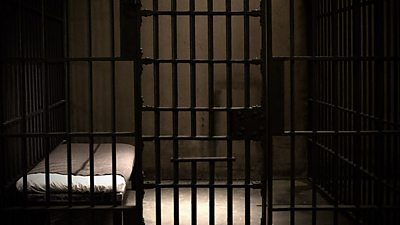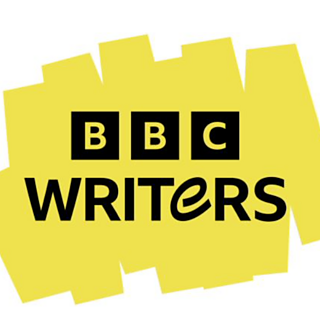
Winning the Alfred Bradley Bursary was the start rather than the end of a journey. In previous years the winning script (in my case a stage play called Glory Dazed) has gone on to be produced for . With Glory Dazed it was felt that the changes that the play would’ve needed to undergo to make it work for the afternoon play slot would’ve compromised the story. So I was asked to write something new.
I had an idea for a while that I wanted to write something about the culture of blame that surrounds some of the most challenging public sector roles – prison officers, social workers etc. These are the people who work on the frontline and frequently receive less pay and respect than they deserve. They’re also the people who we’re very quick to pin to the wall when things go wrong.
Of course it’s right that when a child who is under the care of social services is killed under horrific circumstances that we should investigate if and where things went wrong. But not if that’s merely about distracting us from the real questions: How is it possible that in modern Britain children are still being raised in poverty? Why don’t we seem to care that the gap between rich and poor is growing? Because ignoring those while we prosecute prison officers for failing to keep a suicidal prisoner alive or sacking a doctor for not recognising that a child was being abused is like putting a band aid on a gaping wound!

The problem with starting with an idea rather than a character or story was that developing a story in which those ideas could be explored was tricky. And finding a story that explored those ideas that people might want to listen to, trickier still. I’ll let you be the judge of how well we did that! But the great thing about this process is that I haven’t been alone in it.
It was very exciting (and new for me) to work with a director (Sharon Sephton) from the very beginning. Having someone that you trust, to share and develop embryonic ideas with feels like a very creative way of working and I’ve no doubt the play ended up being very different from the one I would have written alone. It’s great to have someone involved who’s equally invested as you are and (in my case) keeps you focused on the storytelling rather than the ideas or gestures that are central to it.
The other very cool thing about this project was the fact that we recorded sound in an actual prison. Prisons have a very distinctive soundscape and I think it would have been very hard to re-create that in a studio. The real sounds we recorded add a real truthfulness to the play for me and that was important. I was aware that many of the audience wouldn’t have experienced a prison first-hand so the fact that those are real crashing gates and radios and shouting prisoners that you hear in the play is great. In fact the whole experience of writing for radio has left me with a real appetite for exploring how evocative and atmospheric sound can be. I think it’s really easy to forget that when you’re writing for other mediums.
Cat Jones' Afternoon Play will be broadcast on �鶹������ҳ��� Radio 4 on 11th July 2013 at 2.15pm. Listen back on .
from the �鶹������ҳ��� writersroom .
Follow on Twitter.
The Alfred Bradley Bursary Award for radio drama writers will relaunch in Autumn 2013 - keep an eye on the for announcements.
